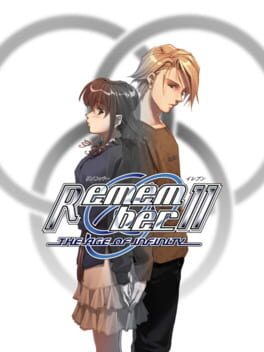This review contains spoilers
This game asks a lot of suspension of disbelief from the player, and I tried my best to oblige without success. It is not the extraordinary situations (and their flimsy explanation) that distracted me from enjoying the story, but the way characters react to these situations. Kokoro often doesn't seem to grasp the dire situation she's in and is often distracted by minor affairs, while Satoru seems to put his curiosity over his immediate danger. It is clear from the start that the mystery itself is the only thing that matters for the developer, characters are mere tools in it.
But which mystery? How do the characters escape from the looming doom? How do they exchange conscious across space and time? These questions are answered in the game, but as I mentioned, the explanations are flimsy (quantum mechanics shenanigan).
There is one big mystery remains: what is this whole story all about? It doesn't have the most compelling characters, it doesn't have romance, and the sci-fi elements are quite cliche (at least in 2024). Is that it? What's the point? At the very, very end of the game, the game told me "the truth is not revealed". But how could it be if I have reached the end (all 33 of them in fact)?
I can only imagine the frustration that people feel when they played the original version of the game. Indeed, the game was considered incomplete, and people had been data mining for a missing last chapter. The history log that was added in the PSP version is the closest thing to what people were looking for. With its help, all of sudden everything clicks. Not only does it elevate the story to a whole new dimension (literally), it also ties the game to the two previous entries in the series. Even I, who is usually not a fan of meta narrative, have to begrudgingly agree that the real trick of the story, the mystery that is bigger than time travel, is pretty fucking cool. After Ever17, they got me again.
But which mystery? How do the characters escape from the looming doom? How do they exchange conscious across space and time? These questions are answered in the game, but as I mentioned, the explanations are flimsy (quantum mechanics shenanigan).
There is one big mystery remains: what is this whole story all about? It doesn't have the most compelling characters, it doesn't have romance, and the sci-fi elements are quite cliche (at least in 2024). Is that it? What's the point? At the very, very end of the game, the game told me "the truth is not revealed". But how could it be if I have reached the end (all 33 of them in fact)?
I can only imagine the frustration that people feel when they played the original version of the game. Indeed, the game was considered incomplete, and people had been data mining for a missing last chapter. The history log that was added in the PSP version is the closest thing to what people were looking for. With its help, all of sudden everything clicks. Not only does it elevate the story to a whole new dimension (literally), it also ties the game to the two previous entries in the series. Even I, who is usually not a fan of meta narrative, have to begrudgingly agree that the real trick of the story, the mystery that is bigger than time travel, is pretty fucking cool. After Ever17, they got me again.
